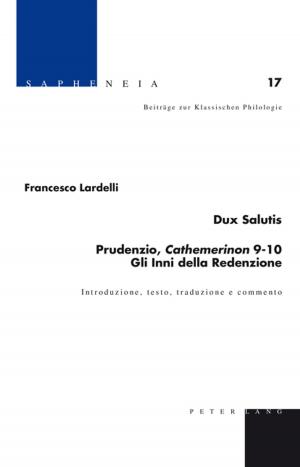Only Connect
E. M. Forsters Legacies in British Fiction
Fiction & Literature, Literary Theory & Criticism, French, European| Author: | ISBN: | 9783034326018 | |
| Publisher: | Peter Lang | Publication: | April 12, 2017 |
| Imprint: | Peter Lang AG, Internationaler Verlag der Wissenschaften | Language: | English |
| Author: | |
| ISBN: | 9783034326018 |
| Publisher: | Peter Lang |
| Publication: | April 12, 2017 |
| Imprint: | Peter Lang AG, Internationaler Verlag der Wissenschaften |
| Language: | English |
Since Forster’s death in 1970, many British novelists and film directors have acknowledged and even claimed the influence of the novelist of the English soul (in Woolf’s terms) and of a renewed faith in both human relationships and a quintessentially British liberal-humanism. After the ethical turn at the end of the twentieth century, British literature today seems to go back even more drastically to the figure of the individual human being, and to turn the narrative space into some laboratory of a new form of empowerment of the other’s political autonomy. It is in this context that the references to Forster are more and more frequent, both in British fiction and in academia. This book does not only aim at spotting and theorising this return to Forster today. Rather we endeavour to trace its genealogy and shed light on the successive modes of the legacy, from Forster’s first novel, Where Angels Fear to Tread (1905) onwards, to the novelisation of Forster himself by Damon Galgut. How can the principle of connection, of correspondences and echoes, which informed Forster’s private life and approach to writing so much, equally characterise the aesthetic and political influence of his œuvre?
Since Forster’s death in 1970, many British novelists and film directors have acknowledged and even claimed the influence of the novelist of the English soul (in Woolf’s terms) and of a renewed faith in both human relationships and a quintessentially British liberal-humanism. After the ethical turn at the end of the twentieth century, British literature today seems to go back even more drastically to the figure of the individual human being, and to turn the narrative space into some laboratory of a new form of empowerment of the other’s political autonomy. It is in this context that the references to Forster are more and more frequent, both in British fiction and in academia. This book does not only aim at spotting and theorising this return to Forster today. Rather we endeavour to trace its genealogy and shed light on the successive modes of the legacy, from Forster’s first novel, Where Angels Fear to Tread (1905) onwards, to the novelisation of Forster himself by Damon Galgut. How can the principle of connection, of correspondences and echoes, which informed Forster’s private life and approach to writing so much, equally characterise the aesthetic and political influence of his œuvre?















